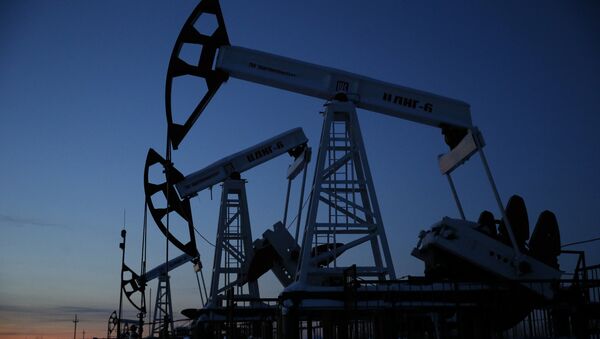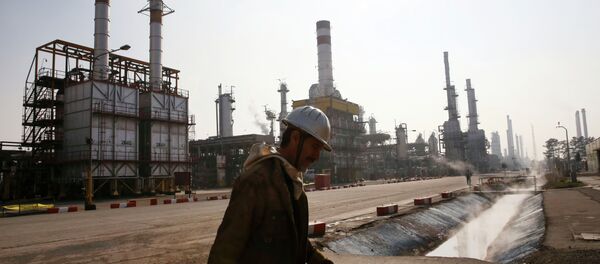After the meeting, Novak said that four countries — Russia, Saudi Arabia, Qatar and Venezuela — were ready to freeze oil production at January levels if other oil producers were to join the initiative.
However the plan might fail due to Iran's unwillingness to cut its oil production. Tehran has just recently returned to the international market after years of international sanctions. That's why the country would want to increase its oil production to at least the pre-sanctions level before it would even consider freezing its production.
"The absence of Iran is a major stumbling block," van Dulken told Radio Sputnik.
The energy expert said that even if everyone freezes their production while Iran continues to pump oil into the market, the situation would end up worse than it is now.
Unless there is a truly global coordinated effort to cut back on oil production, there is little chance that the idea of some countries freezing their production would work, van Dulken said.
Global oil prices plunged from $115 to less than $30 per barrel between June 2014 and January 2016, hitting their lowest levels since 2003, mostly because of a prolonged global oversupply and low demand.



